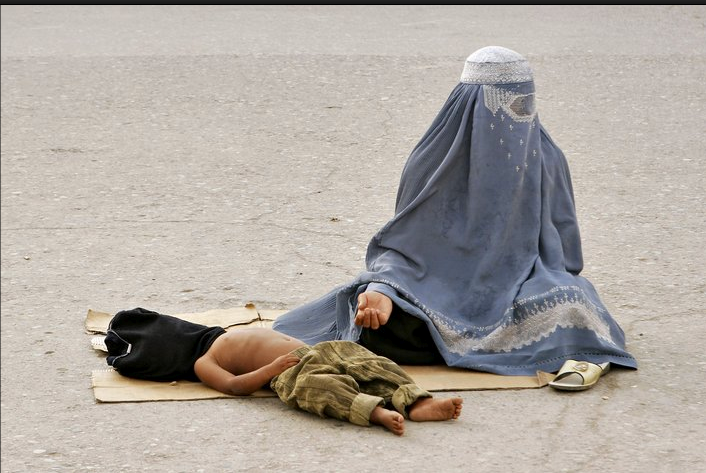The Poor will suffer the most - again!
AFTER governments announced a £2-trillion bail-out of banks across the world this week, charities and churches were left wondering whether there would be enough money left to help the poor.
The World Bank warned that the “unprecedented turmoil” in the financial markets, the tightening of credit, and the global economic slowdown could do “serious and in some cases permanent damage” to the world’s poorest people. This year, 100 million people have been driven into poverty. “That number will grow,” the bank’s president, Robert Zoellick, said on Sunday.
The Archbishop of Canterbury, speaking in London on Wednesday, at the end of a meeting of Christian and Muslim scholars, was asked who was responsible for the financial crisis. Dr Williams told reporters: “I was going to say Satan. . . The root problem is human greed.” The priority given to the poor by Christianity and Islam was not always reflected in the realities of economic activity, he said.
Ernese Skinner, policy and campaign manager of the Charity Finance Directors Group (CFDG), warned that the crisis could see matched funding from local authorities dry up, as they tried to recoup their losses after the collapse of the investments they had made in Icelandic banks. “It is the unfortunate who will suffer most,” she warned.
Local authorities and charities, which are believed to have invested about £1 billion in the banks, are not able to apply for relief under the Government’s Financial Services Protection Scheme, she said. For example, 99 charities, valued at a total of £230 million, have investments in the Kaupthing Bank in Iceland, and most of these are British.
CFDG has written to the Treasury to ask it to extend the financial-services guarantee to cover all losses by charities — including churches — after a meeting with Lord Myners at the Treasury on Friday.
The Charities Aid Foundation, in a joint statement with CFDG and other charity groups, has urged charities affected by the Icelandic banking crisis to say who they are, so that the scale of the problem can be assessed.
The Church Urban Fund’s chief executive, Tim Bissett, said the situation could be returning to the way it was in the early 1990s, when the Fund worked with the poorest city communities. “What the Church did then was to show that it could rally to support poor people in this country.
“We recognise the urgency of the economic downturn and its effect on the poorest people in the community, and we will appeal to those who can support us,” he said.
But on Tuesday Mr Bissett had not yet considered what would happen if local authorities’ matched funding stopped. “If that stream dries up, we could be asked to make much bigger grants.”
The Church’s national stewardship and resources officer, Dr John Preston, said that giving had held up well in past downturns. “But for capital funding projects like the church-roof appeal — those could be much tougher in that environment.”
The World Bank warned that the “unprecedented turmoil” in the financial markets, the tightening of credit, and the global economic slowdown could do “serious and in some cases permanent damage” to the world’s poorest people. This year, 100 million people have been driven into poverty. “That number will grow,” the bank’s president, Robert Zoellick, said on Sunday.
The Archbishop of Canterbury, speaking in London on Wednesday, at the end of a meeting of Christian and Muslim scholars, was asked who was responsible for the financial crisis. Dr Williams told reporters: “I was going to say Satan. . . The root problem is human greed.” The priority given to the poor by Christianity and Islam was not always reflected in the realities of economic activity, he said.
Ernese Skinner, policy and campaign manager of the Charity Finance Directors Group (CFDG), warned that the crisis could see matched funding from local authorities dry up, as they tried to recoup their losses after the collapse of the investments they had made in Icelandic banks. “It is the unfortunate who will suffer most,” she warned.
Local authorities and charities, which are believed to have invested about £1 billion in the banks, are not able to apply for relief under the Government’s Financial Services Protection Scheme, she said. For example, 99 charities, valued at a total of £230 million, have investments in the Kaupthing Bank in Iceland, and most of these are British.
CFDG has written to the Treasury to ask it to extend the financial-services guarantee to cover all losses by charities — including churches — after a meeting with Lord Myners at the Treasury on Friday.
The Charities Aid Foundation, in a joint statement with CFDG and other charity groups, has urged charities affected by the Icelandic banking crisis to say who they are, so that the scale of the problem can be assessed.
The Church Urban Fund’s chief executive, Tim Bissett, said the situation could be returning to the way it was in the early 1990s, when the Fund worked with the poorest city communities. “What the Church did then was to show that it could rally to support poor people in this country.
“We recognise the urgency of the economic downturn and its effect on the poorest people in the community, and we will appeal to those who can support us,” he said.
But on Tuesday Mr Bissett had not yet considered what would happen if local authorities’ matched funding stopped. “If that stream dries up, we could be asked to make much bigger grants.”
The Church’s national stewardship and resources officer, Dr John Preston, said that giving had held up well in past downturns. “But for capital funding projects like the church-roof appeal — those could be much tougher in that environment.”


